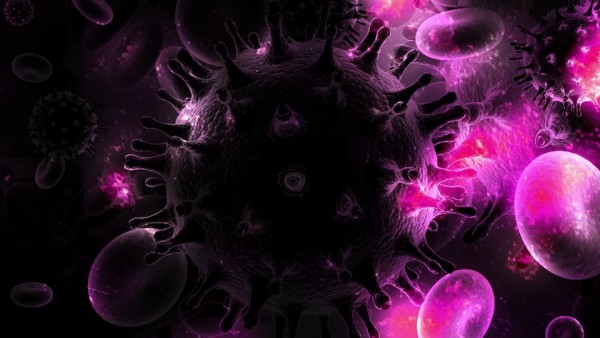By ivan wanjiku, | January 26, 2017

HIV cloaks its vulnerability to the immune system by masking as normal tissues.
One of the mysteries that have baffled scientists trying to develop a HIV vaccine is why some people infected by with the virus produce the required antibodies after several years, but a vaccine cannot seem to provoke the same response.
Like Us on Facebook
A team of researchers at the Duke Human Vaccine Institute has been trying to unravel that mystery.
After studying 100 HIV-infected people, half whose immune systems eventually produced antibodies capable of neutralizing the HIV virus, the researchers discovered five key immune differences that could assist in the development of a how-to manual for an effective HIV vaccine.
"This work gives us the beginning of an understanding of the immune mechanisms that control development of broadly neutralizing antibodies, which is a major goal of a successful HIV vaccine," said Barton F. Haynes, M.D.
Haynes, who is the director of the Duke Human Vaccine Institute and senior author of the study, said that their discovery helps promote important concepts for HIV vaccine design.
Haynes added that this would help overcome a roadblock that has been present since the work to look for a HIV vaccine started 30 years ago.
In an earlier work, Haynes and his colleagues studied a person with both HIV and a form of lupus erythematosus (an autoimmune disease). The person's immune system controlled the HIV virus and developed broadly neutralizing antibodies.
The researchers believe that the same immune disruptions that led to the person developing lupus were also somehow responsible for enabling the broadly neutralizing antibodies to fight the HIV virus.
"In essence, HIV cloaks its vulnerable sites that the immune system wants to see by making them resemble our own tissues," said lead author Anthony Moody, M.D.
Moody added that in doing so, HIV creates an environment in which the virus is protected, and the beneficial antibodies are treated as a threat to the body.
Haynes said that for scientists to be able to create a broadly neutralizing antibody-inducing vaccine, they will need to mimic the immune permutations that occur in the setting of HIV infection.
-
Use of Coronavirus Pandemic Drones Raises Privacy Concerns: Drones Spread Fear, Local Officials Say

-
Coronavirus Hampers The Delivery Of Lockheed Martin F-35 Stealth Fighters For 2020

-
Instagram Speeds Up Plans to Add Account Memorialization Feature Due to COVID-19 Deaths

-
NASA: Perseverance Plans to Bring 'Mars Rock' to Earth in 2031

-
600 Dead And 3,000 In The Hospital as Iranians Believed Drinking High-Concentrations of Alcohol Can Cure The Coronavirus

-
600 Dead And 3,000 In The Hospital as Iranians Believed Drinking High-Concentrations of Alcohol Can Cure The Coronavirus

-
COVID-19: Doctors, Nurses Use Virtual Reality to Learn New Skills in Treating Coronavirus Patients







